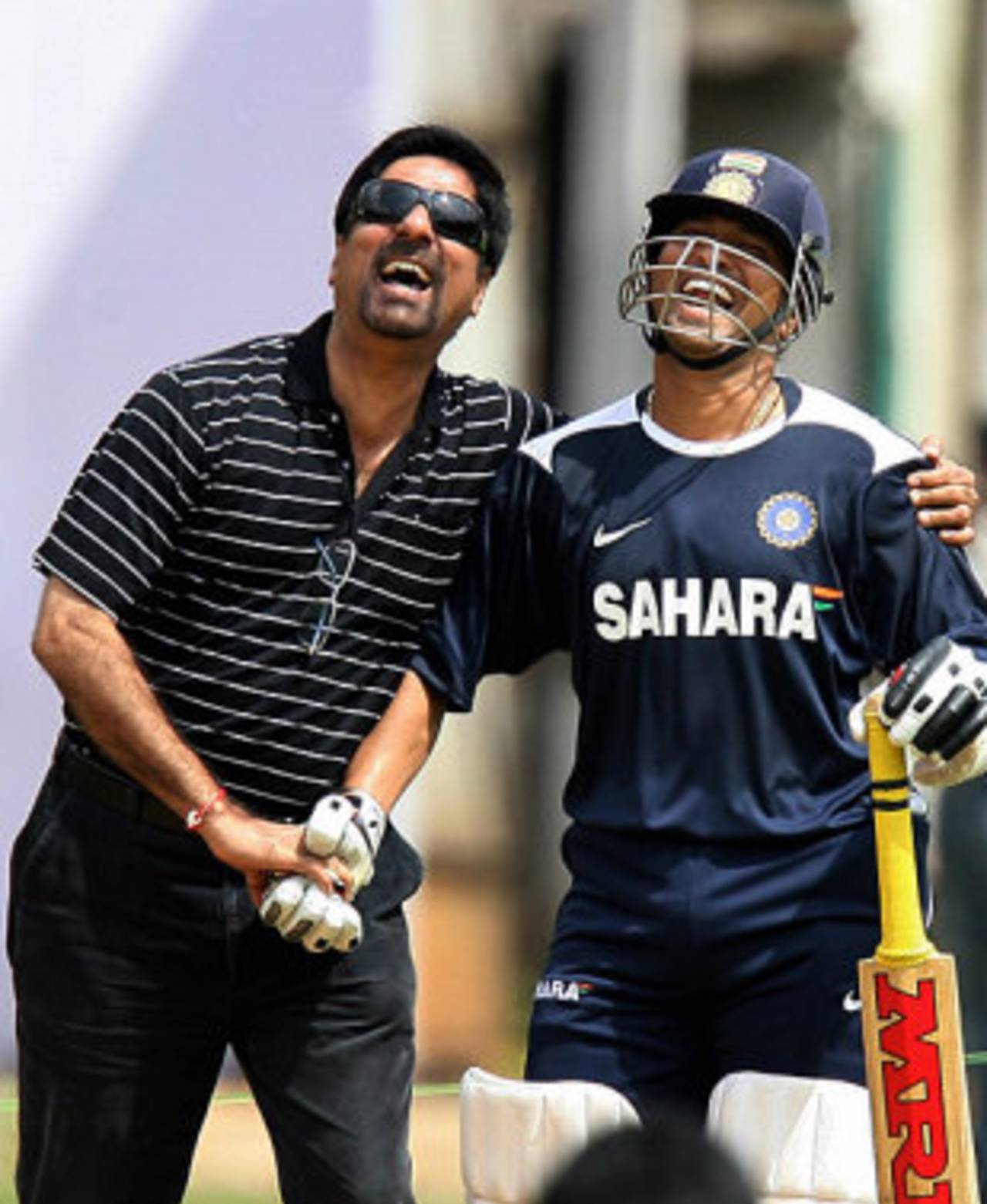So there is too much money in the game. Young men with hormones on fire, and inhibitions left behind at the last stopover, find temptation at every corner and the wherewithal to yield. They toss more away on one purchase than their parents made in a couple of years, in a lifetime at times. And we look on from the sidelines tut-tutting, as the elders of our generation did at us. Surely, we say, they need to be mentored, need to be reminded of what it means to play for your country, need to be told of the responsibility they carry, of the inequities in our society... it's a long list.
The need for mentorship makes for an interesting debate. As the game grows bigger, as opportunities increase, as a tug on the shoulder seeks to drag young athletes away from the path that brought them success, surely they need someone to nudge them back, to drag them back sometimes? I strongly believe in the need for a sounding board, something that reminds young men of why they started playing this game, of what they can achieve through it, and of how they can grow as people, which is why, the best time to mentor players is in their late teens.
It is not always necessary that growth as a player and as a person must go simultaneously; sometimes you can be a giant in one area and a dwarf in another, but it helps if the two go together. It is especially useful because with Indian cricket, and cricketers, there is a history, even a legacy, of arrogance. The message, sometimes subliminal, sometimes direct, is that the world needs them more than they need the world. As some of us know, that is but a momentary high, but it can be a devastating high.
The role of a mentor can also be overstated; the need can be felt more in the mind of the mentor than by his ward, as every parent has experienced at some point. The day a player feels the need to be disciplined and respectful to his craft from within himself, he acquires a work ethic, and then nothing can stop him from being as good as he can be. If he needs to be reminded, then he hasn't felt it, and he will at best smile and nod at a mentor. In course of time he will realise that living with fame and money is a challenge similar to learning to play the short-pitched ball. Both can be career-threatening. Indeed, the bouncer has sometimes been conquered more easily than fame!
The argument, therefore, that young men shouldn't be offered too much is simplistic and impossible to deliver. These men possess skills that command a price, and you cannot insulate them from buyers, just as you cannot a fine equities trader or a magician or a winger who runs like lightning with the ball at his feet. It has often been said that they need the likes of an Alex Ferguson to groom them. It is a fair thought and it works in football, when it does, because the manager has the power to drop a player and endanger his future if he doesn't fall in line.
It is imperative that all selection, including that of selectors, be attitude-based. It could well mean that a team loses a dazzling talent, but inevitably the team will emerge stronger
That is why, in the Indian context, the selector is a critical and vastly under-exploited resource. If the selectors are men of integrity, and are seen to be putting the team's interest first at all times, they can be the agents of growth and progress that mentors sometimes cannot be. But we do not always look at it that way. The position of a selector is often a whimsical appointment, where before and after his term he wants to be seen to be close to the players he is now expected to adjudicate over. It cannot be like that. A Ferguson or a Mourinho or an Ancelotti work because of the nature of the system, where you play for a franchise and for money more often than you do for your country. If you don't toe the line, you lose your contract. It is something that a national body can rarely implement, and yet it must.
We have often had this debate in India and we return to the one-from-each-zone approach, even though with the new Ranji Trophy pattern the zonal system is obsolete. When the Duleep Trophy is disbanded, as it should have been a decade ago, even that vestige will vanish. We should then, strictly speaking, be able to appoint the best man for the job, but we won't because it has never been seen as a critical appointment. There is also this flawed theory that there is so much cricket that three people cannot see enough. Another reason to put limits to the ridiculous amount of first-class cricket played in India. As has been increasingly shown up, the quality of our cricket simply isn't good enough, and so under-skilled players get overpaid.
It is imperative that all selection, including that of selectors, be attitude-based. It could well mean that a team loses a dazzling talent, but inevitably the team will emerge stronger. Sadly the BCCI is too understaffed, and not committed enough, to focus on issues around the playing of cricket, and till such time it will be each man to his own. A show-cause notice fewer and one more player-care notice will do them no harm.
Harsha Bhogle is a commentator, television presenter and writer
